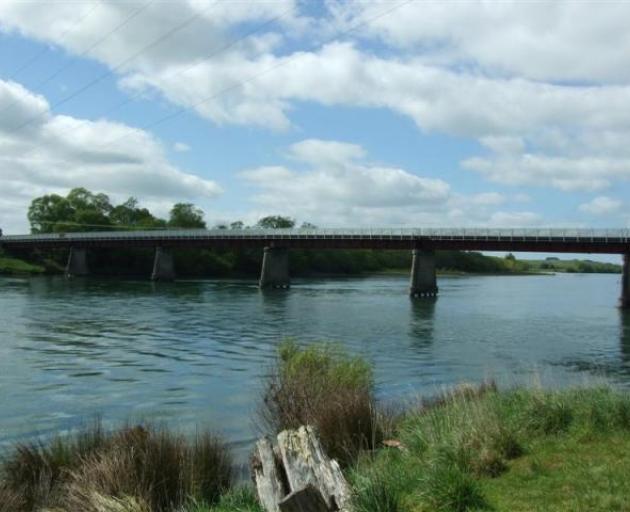
The Government is ignoring basic economic principles on water use, writes Gerrard Eckhoff.
Just the other day it was announced that the vegetable growers of Levin will not be planting as the weather is too hot and they have no stored water to irrigate their crops.
Their decision not to invest in water storage will therefore result in a significant loss of income. Economists call it the opportunity cost, in this case of water.
We consumers are also impacted by opportunity cost as we make our usual decisions to buy and sell. To buy or not buy a car; to invest some money instead of going for a holiday. All have opportunity costs attached. The choices we make can have only minor impacts but what happens when governments simply ignore this most basic of economic principles? The Labour-led Government decided to do away with the badly named "irrigation fund" in favour of other expenditure. There will be a massive opportunity cost associated with that decision.
The environmental lobby’s campaign to demonise all forms of intensive farming has been entirely successful to the extent that the Government withdrew even the meagre support of the previous Government for water storage.
A lack of storage nationwide is already impacting on town water supplies as population growth and hot, dry summers start to impact. Central governments appear preoccupied with infrastructural problems of Auckland, which are real but so, too, is inadequate water supply infrastructure capacity throughout New Zealand.
Water storage is both a private and public good. Water stored by the Falls dam at St Bathans and the Loganburn dam in Maniototo augments flows in the Manuherikia and Taieri Rivers when needed, for example. Despite the reality that 98% of all water is not used for intensive farming, we are still in desperate need of water storage in many parts of New Zealand, especially east of the Main Divide.
The administration of water is under increasing pressure to accurately determine both economic and aesthetic value. Each has significant losses attached to the others’ values. Freshwater allocation between competing productive uses is relatively simple compared with allocation for recreational values competing for the same water.
In other words, as demand for recreational value increases, the availability of water for an economic use diminishes. Add the seasonal variation of rainfall, and the failure to apply even basic economics to the use of water, the opportunity cost becomes even more obvious. Evidence suggests that variation of rainfall from year to year and not scarcity of water is the real problem. Despite this obvious reality being easily overcome by water storage, nothing is now to be done, by government decree.
The question now becomes who or what should have the highest use right to existing water? The productive use or the recreational use? The environmental lobby groups have a huge political and public sphere of influence, so the answer becomes self-evident. Meanwhile the opportunity cost of water, for all our benefits, is still ignored.
The decision soon to be made by the Otago Regional Council on the minimum flow of the Clutha River is a case in point. The ORC is asking people to make submissions on how they "feel" about the Clutha River. No empirical evidence as to the financial /productive/economic/recreational value of the Clutha River is released by the ORC to assist the public in their personal submission. In other words, the opportunity cost of the water from the Clutha is set aside from the process in favour of how we all feel about this magnificent water body. The visual impact of the Clutha is clearly substantial yet only a relatively small (but increasing) percentage of the population enjoy its recreational potential. It is not clear how under-use of this completely renewable resource benefits the wider community of Otago. The opportunity cost of this resource must be fully assessed and debated before any decisions can rationally be made, which sadly, is not currently the case.
To the productive sector (which includes all towns), the cost of supply and distribution of water is very real and is inherent in the cost of supply and production. To the fisher or recreational user there is no cost except the opportunity cost to our wider society, of which they are part. Every use of fresh water therefore has a cost; however some costs are imposed often due to political influence rather than hydrology or economics.
The electricity industry, for example, pays little cost for the millions of tonnes of silt deposited behind the Clyde and Roxburgh dams, yet provides an essential service to us all, as do food producers. Only one, however, is vilified. Even viticulturists are called "alcohol farmers" by some environmentalists.
A report by the Global Water Resources Group projects that by 2030, annual global freshwater needs will reach 6.9trillion cubic metres, 64% more than existing reliable and existing supply. The implications for further global and domestic conflict are obvious as interest groups vie for influence and control. The failure of our Government to recognise this highlights that the opportunity cost of water will impact on us all. Prime Minister Jacinda Ardern needs to tell us of her plan when the wells run dry.
- Gerrard Eckhoff is a retired Central Otago farmer and former Otago regional councillor and Act NZ MP.












